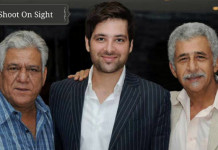YouTuber Nadir Ali recently faced criticism after a podcast interview in which he asked model and actor Sunita Marshall invasive questions about her faith. However, Nadir took to Instagram to publicly apologise, clarifying that his intention was not to cause any offence. He explained that his curiosity prompted him to inquire about Sunita’s potential conversion to Islam, but he emphasised that religion is a deeply personal decision, and he respects individuals of all beliefs.
“I want to clarify that I had no intention of hurting Sunita or anyone else during the podcast. My questions about her potential conversion to Islam were driven by curiosity. Religion is a personal matter, and I hold utmost respect for people of all faiths. Like billions of Muslims, I hope to see more people embracing Islam, but it should always be a decision made freely. If my words have caused any distress, I sincerely apologise,” he wrote in his Instagram caption, while further expressing his desire, shared by the 1.9 billion Muslims worldwide, to witness people willingly embracing Islam.

READ: Bilal and Anwar Maqsood’s heartfelt exchange over technology will warm your hearts!
During the interview, Sunita found herself confronted with a barrage of invasive questions that delved into her faith, reasons for not converting, her children’s beliefs, and the possibility of her embracing Islam in the future. Despite the challenging nature of these inquiries, Sunita’s composed demeanour and mature responses earned her widespread acclaim. Firmly standing her ground, she reiterated her lack of intention to convert and emphasised that external pressures do not influence her decision.
The incident triggered a much-needed dialogue surrounding the boundaries and ethical considerations in journalism, particularly as public figures increasingly encounter intrusive questioning that encroaches upon their personal beliefs and privacy. Sunita’s experience shed light on the essentiality for interviewers to approach their subjects with respect and professionalism, especially when dealing with individuals in the public eye.

















